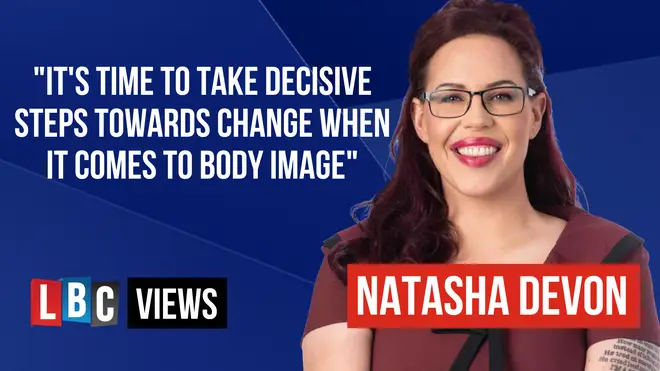
Ben Kentish 10pm - 1am
9 August 2022, 13:56

It’s what in media circles is referred to as ‘silly season’ again – six weeks of summer where schools are closed, parliament is in recess and, in more traditional times, the papers would be light on political content.
This is the time of year when, if we weren’t living in unprecedented cost-of-living and environmental crises happening concurrent with a contest to be the next Prime Minister, my phone would be ringing off the hook with invitations to talk about body image.
Body image issues are still seen as light entertainment: A ‘fluffy’ column-inches filler that can be hooked on to the pressure to feel ‘beach body ready’. This is despite numerous studies linking low body image satisfaction to wide-ranging and serious consequences: People who don’t like or respect their bodies are less able to participate and concentrate at school, less likely to be promoted at work, more likely to be in dysfunctional or abusive relationships and more likely to experience mental health issues.
Indeed, a 2019 study by the Mental Health Foundation found that 1 in 8 British adults had experienced suicidal thoughts because of body image concerns.
There are implications for the physical health of the nation, too: Those who have a positive or neutral relationship with how their body looks tend to feel more comfortable taking physical exercise and make more nutritious food choices.
This has been established for some time, yet still Body Positivity is portrayed as a quirky little fringe movement whose devotees advocate sitting on the sofa eating lard all day.
In 2020 Women & Equalities Committee found 61% of adults and 66% of children feel negative or very negative about their bodies most of the time: It’s clear we have a problem. And yet, this problem has been evident for decades and without any decisive action being taken.
I remember when I first came in to body image campaigning, around 2008. I met veterans of the movement, including Dr Susie Orbach, Dr Jean Kilbourne and Caryn Franklin – women who were incredibly knowledgeable and passionate but who also seemed frustrated and tired. Fourteen years of saying pretty-much the same thing later, I know exactly how they feel.
I can see how the response to this issue has become groundhog day-esque: Various select committees take evidence from activists and experts, before making recommendations to the department of health, or industry.
In response to these recommendations, a model, influencer or reality TV star is wheeled out to speak about their own experience of eating disorders or body dysmorphia, creating content for ‘silly season’.
We wring our hands, talk about how awful it must be for them and nothing is done. (I know this because I was once the former-model-turned-campaigner these stories centred on).
Because social media creates body image trends and the beauty industry comes up with ever-more ridiculous, extreme and costly ways for us to ‘fix’ the ‘flaws’ we didn’t know existed, each year this can be presented to us as a new story.
This month, the Health Select Committee have recommended photoshopped images have more visible indicators on them and plastic surgeons do more thorough checking on their client’s mental health histories. Both of these policies were discussed extensively when I was on a committee that advised the All Parties Parliamentary Group on Body Image between 2012 and 2015. The recommendations are identical, but there’s a group of new faces advocating for them now.
It’s time to stop this futile merry-go-round, acknowledge that body image insecurity does measurable damage to the health of individual citizens and to the wealth of the nation, and take decisive steps towards change.